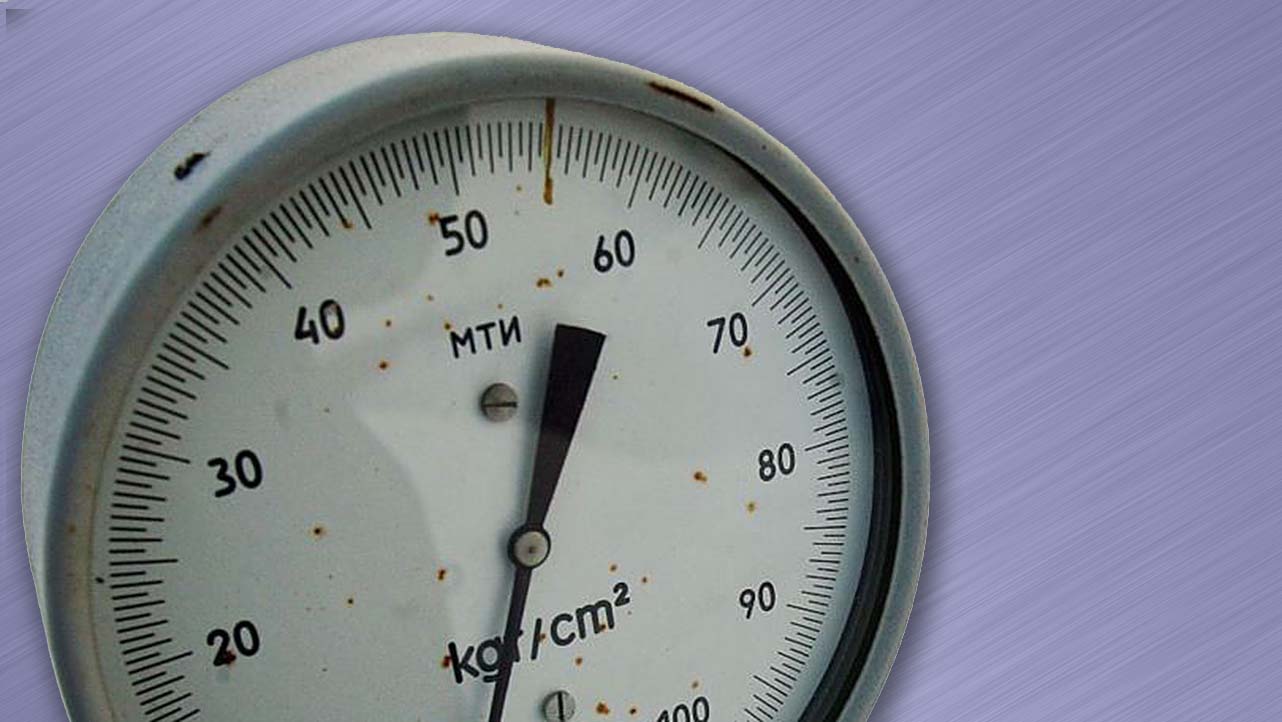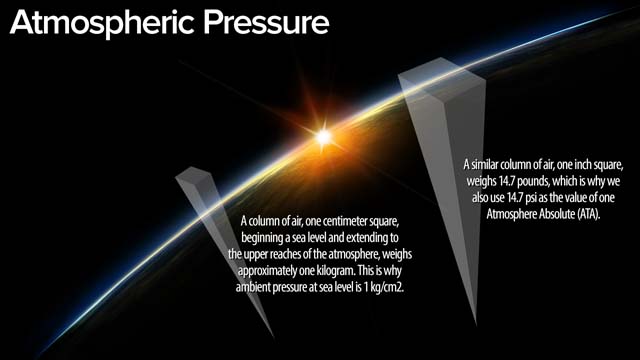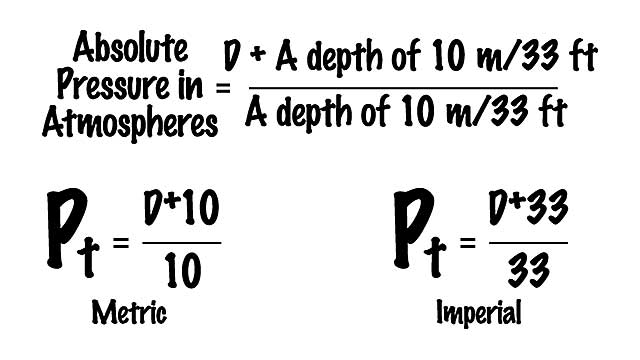Pressure

In this section, we discuss:
- Defining Pressure
- Determining Pressure
- What is pressure and what terms can divers use to define pressure?
- How can you convert depth, in meters or feet, to Atmospheres Absolute?
Defining Pressure
Pressure is defined as a force acting on a particular area of matter. When under water, a diver is subjected to the pressure of the weight of the water above him and the weight of the atmosphere over the water.
- The term ambient pressure refers to the surrounding pressure at any altitude or depth.
- Atmospheric pressure at sea level is approximately 1.0 kg/cm2 or 14.7 pounds per square inch. This value is also referred to as one atmosphere.

- Atmospheres Absolute (ATA) refers to ambient pressure at atmosphere or depth expressed as a whole ore fractional number of atmospheres. For example, the ambient pressure at 10 m/33ft of sea water is roughly 2.0 ATA. Atmospheres Absolute can also be used to express the partial pressure (PO2) of a gas in a mixture. At an ambient pressure of 1.0 ATA. the partial pressure of oxygen in EAN32 is 0.32 ATA.
- Gauge pressure is ambient pressure, minus one atmosphere. When empty, your scuba tank has a gauge pressure of zero, even though the actual pressure inside is roughly 1.0 kg/cm2 or 14.7 psi.
Determining Pressure
You can convert depth, in meters or feet, to Atmospheres Absolute by using a mathematical formula.

Formulas for determining depth from ambient pressure, and for calculating PO2 from depth appear in the Appendix.
Key Points to Remember
- Pressure is defined as a force acting on a particular area of matter. It can be expressed using terms like ambient pressure, atmospheric pressure, Atmospheres Absolute and gauge pressure.
- You can convert depth, in meters or feet, to Atmospheres Absolute by using a mathematical formula.
Learn More on Wikipedia
